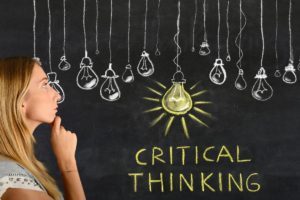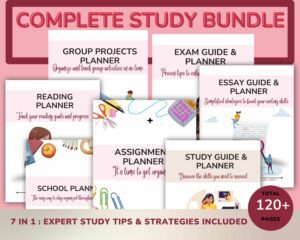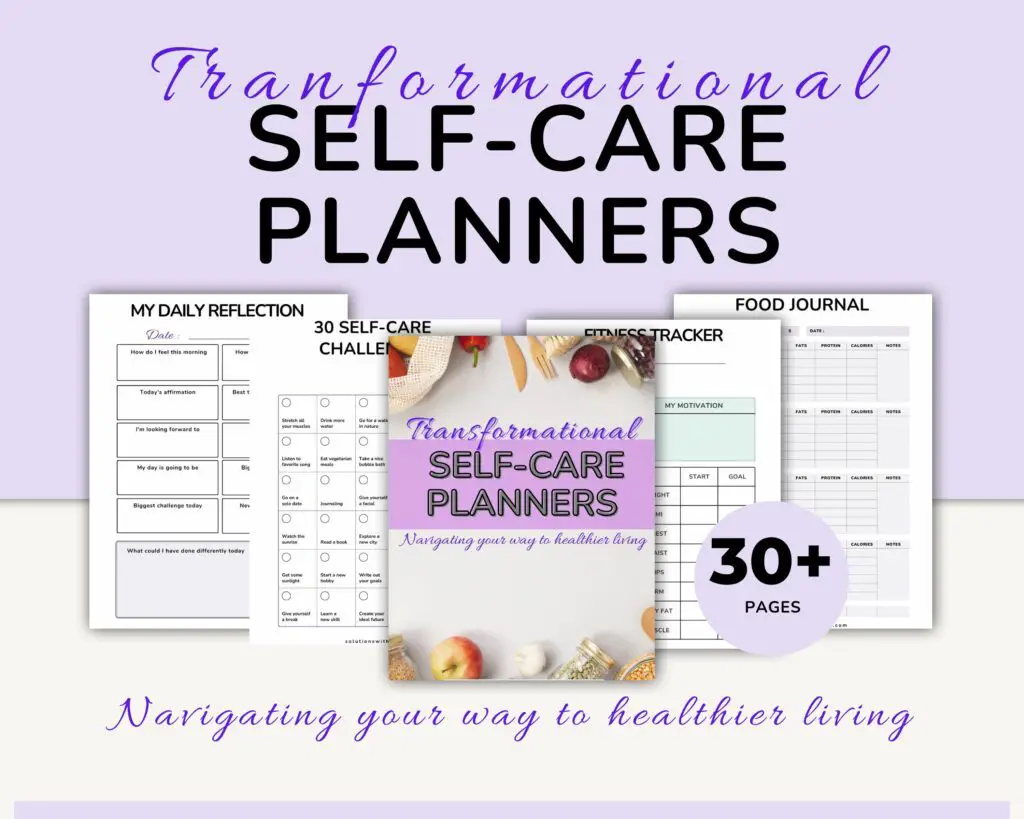Thinking critically allows you to view the world from a more objective standpoint and make informed decisions.
Thinking critically is one of the most important skills you can possess in your personal and professional life. When you think critically, you are looking at things logically and objectively. You are questioning information and looking at all of the evidence before making a decision. We all know that thinking critically is important, but what are the specific benefits of doing so? In this blog post, I’ll list some of the key benefits of critical thinking.
- Thinking critically allows you to view the world from a more objective standpoint and make informed decisions.
- List of benefits of thinking critically
- (1) Critical thinking makes you think differently
- (2) Critical thinking increases cognitive ability
- (3) Critical thinking improves decision making
- (4) Critical thinking keeps your brain active
- (5) Critical thinking boosts emotional health
- (6) Critical thinking improves creative problem solving
- (7) Critical thinking improves communication
- (8) Critical thinking is beneficial for evaluating evidence
- (9) Critical thinking enhances reasoning
- (10) Critical thinking helps you apply logic
- (11) Critical thinking is beneficial in many career paths
- (12) Provides for an increased level of confidence
- What are some of the career paths that require critical thinking?
- How can I improve my critical thinking skills?
- Final words on the benefits of thinking critically
- How to increase your brainpower?
- What are the benefits of reading?
Want the perfect academic resource for your studies?
This all-in-one resource is perfect for any person who wants to take charge of their academic journey.
The bundle includes a total of 7 printables, each equipped with multiple worksheets, trackers, and expert advice.
List of benefits of thinking critically
Thinking critically is an essential skill for success in any field. Actually, when you think critically, you examine problems from all angles, considering all possible solutions and their implications. You also question assumptions and look for evidence to support or refute your ideas.
This approach leads to more informed and well-reasoned decisions, and it can help you to avoid making mistakes.
Critical thinking also helps you to communicate more effectively, as you are able to express your thoughts clearly and justify your position.
Furthermore, when you encounter new information, you are able to assess it objectively and determine its validity and avoid costly mistakes. In sum, thinking critically confers many benefits and is a valuable asset in any endeavor.
Here’s a list of the benefits of critical thinking:
- Improves thought process
- Increases cognitive ability
- Improves decision making
- Keeps your brain active
- Boosts emotional health
- Improves creative problem solving
- Enhances communication
- Helps with evaluating evidence
- Enhances reasoning
- Helps to apply logic
- Promotes professional development
- Increases confidence
(1) Critical thinking makes you think differently
When you can think critically about the world around you, it’s going to open up your mind to new ideas and concepts.
This is because when you start looking at things in a different way, it will trigger your mind to use different neurons that may not have fired before.
(2) Critical thinking increases cognitive ability
When you are able to learn how to think critically about new ideas, it’s going to lead to improving your overall cognitive abilities.
This means that your brain can process information more efficiently which will allow you to learn things faster than before.

"It is the mark of an educated mind to be able to entertain a thought without accepting it." — Aristotle
(3) Critical thinking improves decision making
The reason why critical thinking is important is that it helps with decision-making.
This is because critical thinking will cause you to analyze the information better and understand why certain decisions were made.
(4) Critical thinking keeps your brain active
By challenging your brain to think in different ways than before, you are essentially keeping it active.
This is because if you always think the same way when doing something over and over again, your brain will get used to this method of thinking and may not be able to process things as quickly anymore without a few adjustments being made.
According to research, the generation of new neurons (i.e. nerve cells) depends on a variety of factors that include your age, sexual behavior, alcohol consumption and aerobic exercise.
But, most of these neurons will die after about one week unless you engage in “effortful learning” of some kind (Shors et al., 2012).
(5) Critical thinking boosts emotional health
Critical thinkers are able to use their emotions better to determine how they feel about certain ideas.
This allows them to process things more efficiently because they have a better understanding of why people think the way that they do which helps with decision-making at all times.
It also allows them to be more confident overall which can improve your social life as well as your interactions with others.
Read also: 17 Personal & Work benefits of emotional intelligence
(6) Critical thinking improves creative problem solving
This is one of the most important things that you can learn when it comes to critical thinking because it will allow you to look at problems in a different way.
This type of skill allows you to expand your mind and determine what needs to be done in order to achieve your goals.
According to scholars, creativity and critical thinking are both equally important – but not independent factors – for problem solving. In fact, creativity is important in critical thinking because it helps us come up with alternative arguments and explanations.
Similarly, critical thinking is important for creativity because it helps us evaluate and improve new concepts and ideas (Lau, 1968).
(7) Critical thinking improves communication
When you can think critically about things that people around you say, it’s going to allow you to understand how and what needs to be communicated.
This is because when you look at all angles of a problem, you will be able to figure out the best way to let others know about your idea or thought process.
(8) Critical thinking is beneficial for evaluating evidence
When you can break down the evidence that you have received, it will allow you to determine if what is being said makes sense or not.
This type of thinking also allows you to look at the information that has been given and determine if what you are being told is true or not.
(9) Critical thinking enhances reasoning
When you can think critically, it will allow you to determine why something happened the way that it did and what actions need to be taken in order to change it.
This can help with decision-making at all times because you will know how and why certain decisions were made which can help you come to a better conclusion.
Contrary to what many believe, critical thinking is not purely confrontational and critical. And, although it does help us recognize mistakes, it does require public criticism.
Rather, a critical thinker should strive to be constructive and sympathetic (Lau, 1968)
(10) Critical thinking helps you apply logic
Critical thinking allows us to apply logic and in so doing, detect inconsistencies.
This allows you to base your conclusions on factual evidence while also understanding why things need to be done or why some ideas won’t work.
Read also: 6 Types of activities to improve working memory.

"The important thing is not to stop questioning. Curiosity has its own reason for existing." — Albert Einstein
(11) Critical thinking is beneficial in many career paths
Someone who has a better understanding of how and why things work the way that they do is going to be beneficial in many different types of career paths.
This type of thinking can help you advance your education as well as your personal life because you will be able to determine what makes sense and what doesn’t.
Read also: Career shift: How to master the transition
(12) Provides for an increased level of confidence
A lot of people who learn how to think critically are going to feel better about the decisions that they make.
This is because when you look at all angles and factors of a problem, you will be able to determine what needs to be done to achieve your goals or reach your objectives which builds up your self-esteem and confidence.
What are some of the career paths that require critical thinking?
Critical thinking is a skill set that isn’t going to be limited in its career paths whatsoever. There are many different industries and companies where this type of skill will be beneficial because it’s going to help them think about things in a better way than other employees.
Some examples of places where critical thinkers would work well are big law firms, consulting agencies, and also management.
This is because they can help look at things in a different way than others and come up with the best possible decisions for the company.
In fact, critical thinking has slowly started to become one of the more sought-after types of skill sets that employers are looking for, but it’s important to remember that this isn’t something that you are going to learn overnight.
How can I improve my critical thinking skills?
To improve your critical thinking skills, it is important to start by defining what exactly these skills entail.
Critical thinking refers to the ability to gather and analyze information in a logical and reflective way, assessing different perspectives and examining evidence from multiple sources.
This can require stepping back from our assumptions and biases, understanding the different underlying assumptions that may inform our own beliefs, and being able to evaluate different arguments on their merits rather than focusing exclusively on our own views.
There are several strategies that you can use to improve your critical thinking skills. One of the best ways is simply to practice engaging with new ideas and perspectives through reading, listening, and discussion.
You can also try purposefully challenging your own assumptions by asking “what if” questions or tackling exercises designed to prompt creative thinking.
Additionally, it is essential to cultivate an intellectual curiosity that will spark your interest in exploring new topics and viewpoints.
With practice, these strategies will help you become a more thoughtful and effective thinker in all areas of life. Keep reading to learn more!
Final words on the benefits of thinking critically
We all have the power to shape our own realities. The more we think critically, the better equipped we are to create a life that is both fulfilling and meaningful for ourselves.
What are some other ways that thinking critically benefits people in their everyday lives? Share your thoughts with us by commenting on this blog post.
READY TO TRANSFORM YOUR SELF-CARE ROUTINE?
It’s time to make self-care a delight instead of a chore.
This incredible free resource comes packed with features for tracking everything from your daily water intake to how many steps you take.
Related topics
How to increase your brainpower?
If you’re looking for ways to boost your brain power, you’re in luck. There are many things you can do to increase your cognitive function and improve your mental performance.
In this blog post, we’ll explore some of the best methods for doing just that. So read on to learn more!
What are the benefits of reading?
Reading is an important skill that offers many benefits. When you read, you improve your vocabulary, sentence structure and grammar.
You also gain a better understanding of the world around you. In addition, reading can help improve your concentration and focus. It also allows you to develop empathy and understanding for other people’s experiences. Reading is a great way to relax and escape from the stresses of everyday life.
It can also inspire you to be more creative and productive in your own life. So if you’re looking for a way to improve your mind and your life, start picking up a few good books.
Reference
Gray MT. Beyond content: generating critical thinking in the classroom. Nurse Educ. 2003 May-Jun;28(3):136-40
Lau, J. Y. F. (1968) An Introduction to Critical Thinking and Creativity: Think More, Think Better.
Shors TJ, Anderson ML, Curlik DM 2nd, Nokia MS. Use it or lose it: how neurogenesis keeps the brain fit for learning. Behav Brain Res. 2012 Feb 14;227(2):450-8.
Rushana Greenidge-Horace












Leave a Reply